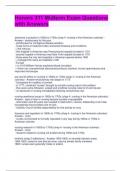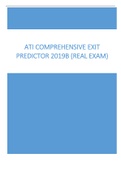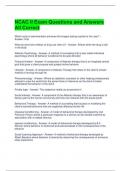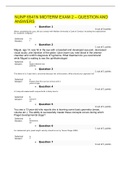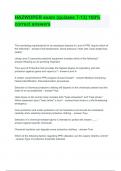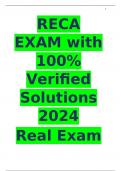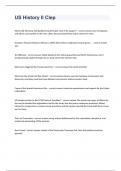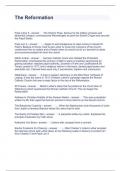Exam (elaborations)
Honors 311 Midterm Exam Questions with Answers
- Course
- Institution
Honors 311 Midterm Exam Questions with Answers advances in practice in 1600s to 1700s (chap 4- nursing in the American colonies) - Answer-- almshouses for the poor - penthouses for contagious disease isolation - crude forms of treatment often worsened illnesses and conditions + like mercury ...
[Show more]
